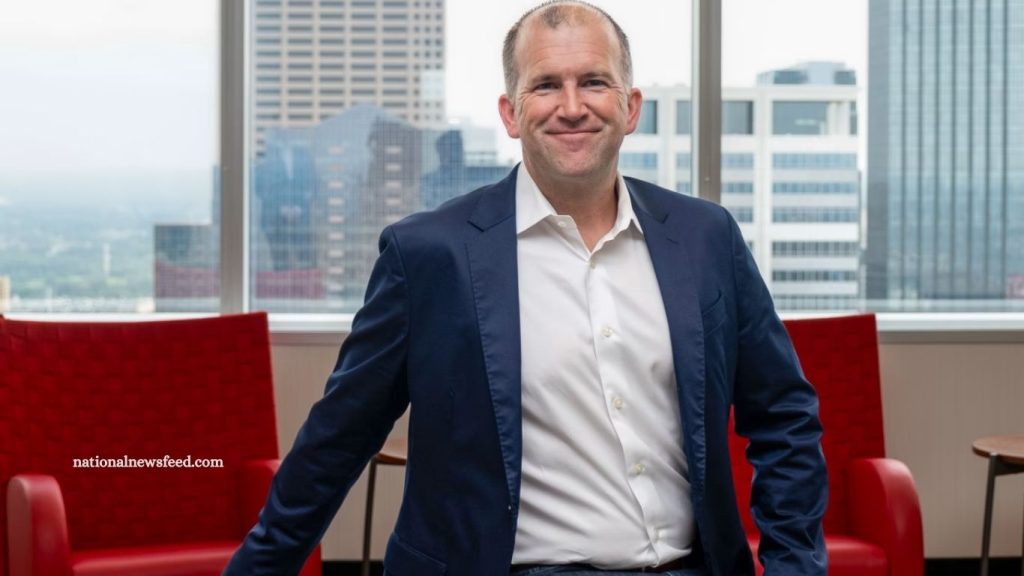Target Corp. on Wednesday announced that longtime executive Michael Fiddelke will become its next CEO, stepping in during a critical period as the retailer works to reverse a sales slump and restore investor confidence.
Leadership Transition
Fiddelke, 49, currently Target’s Chief Operating Officer and former Chief Financial Officer, will succeed Brian Cornell as CEO effective February 1. Cornell, who led Target since 2014, will transition to Executive Chair of the company’s board of directors.
The announcement coincided with the release of Target’s fiscal second-quarter results, which beat Wall Street expectations for sales and earnings. However, the company maintained its full-year forecast, predicting another annual sales decline.
Following the news, Target shares fell roughly 10% in premarket trading. Analysts had widely expected an external hire to take the helm, reflecting Wall Street’s desire for fresh leadership.
Read More: Yieldstreet’s Rise and Fall: Lessons from Risky Alternative Investments
Fiddelke’s Mandate
Fiddelke assumes leadership as Target seeks to regain momentum after four years of relatively flat sales. While the retailer saw a surge during the COVID-19 pandemic, its performance has struggled to sustain growth since.
Speaking with reporters, Fiddelke emphasized urgency in restoring the company’s trajectory. “I am stepping in with urgency to rebuild momentum and return to profitable growth,” he said.
He outlined three key priorities:
- Reinforcing Target’s reputation for stylish and unique products.
- Delivering a consistent and improved customer experience.
- Leveraging technology to operate more efficiently.
“We’ve built a solid foundation, and we’re proud of the many ways that Target is unique in American retail,” Fiddelke said. “We also have real work in front of us.”
A Veteran Leader
Fiddelke brings two decades of experience with Target, having held senior positions across merchandising, finance, operations, and human resources. He became CFO in late 2019 and COO in early 2024. In May, he took charge of the Enterprise Acceleration Office, a new initiative aimed at turning around Target’s performance.
Christine Leahy, lead independent director of Target’s board, praised Fiddelke’s experience and insight. “Michael’s tenure gives him unmatched enterprise insight and a base of strong team trust,” she said. “But what sets him apart is how he combines those strengths with a ‘fresh eyes’ mindset, challenging the status quo to evolve how the business operates, differentiates, and delivers long-term value.”
Financial Outlook and Market Response
Target reiterated its full-year guidance, expecting a low-single-digit percentage decline in sales. Despite beating quarterly expectations, the announcement triggered a decline in investor confidence, with shares falling about 10% in premarket trading.
Target’s stock has faced significant volatility in recent years. After surging during the pandemic, shares have declined roughly 60% from their all-time high in 2021, including a 22% drop in 2025 alone as of Tuesday’s close.
Operational and Competitive Challenges
Customer, former employee, and supplier feedback suggests Target’s hallmark strengths—eye-catching merchandise, organized stores, and friendly staff—have weakened. Additionally, the retailer faces intense competition from Walmart and others, cost pressures from tariffs, and criticism over rolling back key diversity, equity, and inclusion policies.
In a recent development, Target and Ulta Beauty announced the end of their partnership that introduced mini beauty shops in nearly a third of Target stores, scheduled to conclude in August 2026.
Investor Expectations
A June survey by Mizuho Securities of 51 investors indicated a strong preference for an outsider as Target’s next CEO, with 96% favoring an external hire. Despite this, the board selected Fiddelke after a multi-year external search, valuing his deep knowledge of Target’s operations and culture.
When asked how he would respond to investors expecting an outsider, Fiddelke emphasized his understanding of the company’s unique strengths and areas for improvement. “I understand what makes Target distinctly unique. I’ve seen us at our best, and I’ve seen us when we’re not at our best, and that informs my candid assessment of where we have work to do,” he said.
Path Forward
Fiddelke’s primary goal is clear: return Target to growth. By focusing on product differentiation, customer experience, and operational efficiency, he aims to reverse recent performance challenges and reinvigorate the retailer’s market position.
“Getting back to growth is my number one goal,” Fiddelke stated. “We have a strong foundation, but we have work to do to ensure Target thrives in today’s competitive retail landscape.”
Frequently Asked Questions
Who is the new CEO of Target?
Michael Fiddelke, Target’s longtime executive and current Chief Operating Officer, will become the new CEO effective February 1.
Who is Michael Fiddelke replacing?
He will succeed Brian Cornell, who has served as Target’s CEO since 2014. Cornell will transition to Executive Chair of Target’s board.
Why was Michael Fiddelke chosen as CEO?
The board cited Fiddelke’s 20 years of experience with Target, deep enterprise insight, and proven leadership across finance, operations, and merchandising. His “fresh eyes” approach also positions him to challenge the status quo and drive growth.
How is Target performing financially?
Target’s recent quarterly results exceeded Wall Street expectations for sales and earnings. However, the company maintained a full-year forecast predicting a low-single-digit sales decline. Target’s shares fell about 10% in premarket trading following the CEO announcement.
What challenges does Target face?
The retailer faces flat annual sales over the past four years, increased competition from Walmart and other rivals, cost pressures from tariffs, and criticism over recent policy reversals on diversity, equity, and inclusion initiatives.
Was an external CEO candidate considered?
Yes, Wall Street and investors largely favored an outsider. A June survey indicated 96% of investors preferred an external hire. Despite this, the board selected Fiddelke due to his deep knowledge of Target and proven leadership.
Conclusion
Michael Fiddelke’s appointment as Target’s CEO marks a pivotal moment for the retailer as it navigates flat sales, investor skepticism, and increased competition. With two decades of experience within the company, Fiddelke brings both deep institutional knowledge and a fresh perspective aimed at restoring growth. His focus on stylish merchandise, consistent customer experiences, and operational efficiency positions Target to regain market momentum and strengthen its brand.

